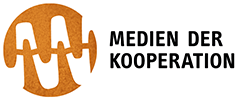Workshop Practice Theory Winter 2016/17
This semester the workshop practice theory will focus on media practices of coordination.
The lecture and workshop series on Practice Theory aims to develop a new perspective on media history and media analysis. It is giving primacy to “practice” while focussing on processes of media production and work. We set out exploring media practices related to “coordination”, “delegation”, “registration & identification”, both with regard to a sound empirical foundation and to theoretical reflection. These categories are used to investigate media practices that specifically interconnect publics and infrastructures. Our lecture and workshop series on Practice Theory is dedicated to “Theoretical Empiricism” and will assemble international research that addresses questions of theory and empirical research symmetrically. For this purpose, three further categories are brought into play as part of the practice turn, namely repair work, experimentation, and actualization.
Talks in the Winter Term 2016/17
Wednesdays at 18:00
Campus Herrengarten, Room AH-228
Exception: At Campus Unteres Schloss, Room US-F 308 on 23 Nov. 2017
Written objects have been extensively studied in semiology, visual anthropology and sociology, and a large body of work focused on the interpretation of signs. In the case of directional signs, studies have stressed out the complexity of on-site adjustments to find one’s way and the inventiveness of riders. Such a user-centric perspective offers an asymmetrical account of the articulation between humans and signs. While users activities are rich and made up of ingenuity, the written object itself is pared-down, mostly considered as a stable and inert artefact. In other words, the agency lies exclusively in the eye of the beholder.
In this presentation, I suggest to step aside from the interpretation and uses of signs in order to surface the work that actually make them stand and last. Drawing on an ethnographic study of the Paris subway wayfinding system, I will insist that the mere presence and persistence of signs in a given space are the fragile result of a twofold continuous working process: design operations dedicated to the shaping of signs’ properties and their environment; repair and maintenance practices oriented towards a daily consideration the fragility and vulnerability of signs. Shedding light on such a careful work is a way to contribute to the ongoing debates about information infrastructures by discussing three different aspects: graphical ecology, materiality, maintainability.
Exception: Campus Unteres Schloss, Raum US-F 308
The division of knowledge that we have inherited is now in the process of imploding. The distinctions between (1) the natural and social sciences and (2) among the various social sciences is something that we inherited from the early 19th century. Yet, recent ‘socionatural’ changes have challenged that disciplinary architecture, itself enshrined in university departments and academic journals. Phenomena as diverse as climate change, information technologies and obesity have challenged the boundaries (if not the core) of these disciplines. I propose the creation of a new multidiscipline that reflects not the boundaries of the disciplines we have inherited, but the ways in which they all depend on the creation and maintenance of infrastructure. That infrastructure consists simultaneously of material objects – roads, bridges, buildings, server farms – and social arrangements ‘guaranteed’ by norms, standards and laws. All ‘disciplinary’ concerns are necessarily embedded in this infrastructure, are made possible by it and must be maintained and modified to take into account changes in the ‘socionatural’ world.
This speculative talk explores a series of questions arising from an interest in the relationship between infrastructures and complexes of social practice. In thinking about how infrastructures-and-practices change over time, how they interact in specific locations and circulate between them, and how forms of interdependence take hold I am interested in thinking about processes that are important in social theories of practice but not yet firmly on the agenda in science and technology studies. These include forms of ‘layering’, ‘obduracy’, ‘anchoring’, ‘de-tethering’ and ‘interweaving’ and ‘hybridisation’. I will make use of a collection of different examples – road infrastructures, digital networks, office buildings, power cuts and home IT – in support of an exercise in interdisciplinary agenda setting.
Systematisierte Kreativitäts- und Ideenfindungsmethoden wie morphologische Tabellen, Brainstorming oder Synektik erlebten in der Nachkriegszeit parallel zum Aufkommen der US-amerikanischen Kreativitätspyschologie und der Designmethodologie eine bemerkenswerte Konjunktur. Bezeichnend für diese Methoden ist, dass sie unterschiedliche Medien- und Innovationspraktiken aus der Wissenschaft, Industrie, Ökonomie und Gesellschaftspolitik miteinander verzahnen. Darüberhinaus lassen sich an ihnen auch soziotechnische Bemühungen nachzeichnen, die systematische Produktion von Ideen und Erfindungen in den Dienst nationaler militärischer und wirtschaftlicher Interessen zu stellen.
Contact:
Dr. Sebastian Gießmann
sebastian.giessmann[æt]uni-siegen.de


